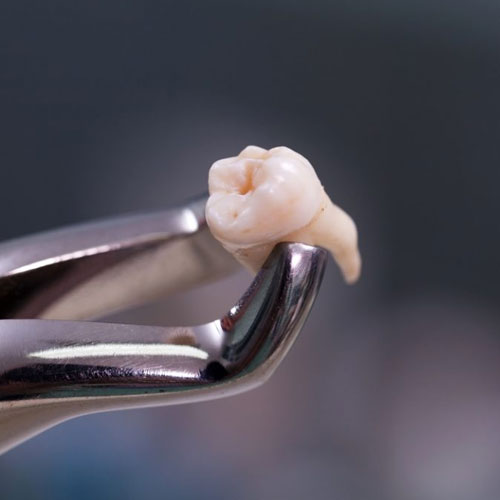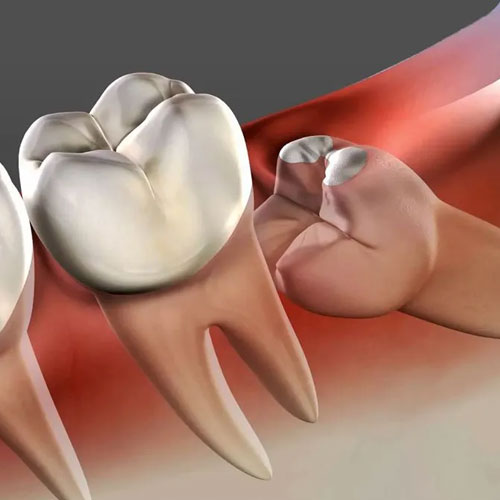Sunday - On Appointment
thanjaidentist@gmail.com
While some people never develop wisdom teeth, others may have up to four, one in each corner of the mouth. These molars typically emerge between the ages of 17 and 24 and can be trouble-free in some cases. However, wisdom teeth may become impacted if there isn’t enough space for them to grow, potentially leading to infection and inflammation.
If your wisdom teeth are impacted, you might experience pain, swollen gums, and jaw stiffness. In such cases, removal of the wisdom teeth is usually the only permanent solution to prevent infection and protect the surrounding teeth.

We only recommend tooth extraction when no other options are viable. Extractions are typically performed for severe tooth decay or trauma. They may also be part of a larger dental procedure, such as creating space for orthodontic treatment. However, we emphasize that we pursue extraction only when absolutely necessary.

Dental sealants are a preventative treatment applied to tooth enamel to protect teeth from cavities. The sealant is brushed or "painted" onto the enamel. To maintain their effectiveness, it is recommended to avoid crunchy foods and hot beverages.

Dental sealants are a preventative treatment applied to tooth enamel to protect teeth from cavities. The sealant is brushed or "painted" onto the enamel. To maintain their effectiveness, it is recommended to avoid crunchy foods and hot beverages.
Some individuals never develop wisdom teeth, while others may have up to four—one in each corner of the mouth. These molars typically emerge between the ages of 17 and 24 and can be trouble-free in some cases. However, wisdom teeth may become impacted if there isn’t enough space for them to grow, which can lead to the need for removal to prevent infection and inflammation.
If your wisdom teeth are impacted, you might experience pain, swollen gums, and jaw stiffness. Removal of the wisdom teeth is usually the only permanent solution and helps prevent infection of the surrounding teeth.
Wisdom teeth removal is typically performed under local anesthetic, which will keep you awake but pain-free during the procedure. However, if you have particularly troublesome wisdom teeth or feel anxious about the surgery, your dentist may recommend general anesthetic to ensure you sleep peacefully through the operation.

Great dental hygiene begins with routine cleanings for your child. We recommend oral health checkups twice a year, ideally combined with your child’s bi-annual teeth cleaning.

Wisdom teeth, also known as third molars, are the last set of molars located at the back of the upper and lower jaws. They typically erupt into the gum line between the ages of 17 and 21. It is common for there to be insufficient space in the jaws for wisdom teeth to emerge properly, causing them to remain partially or fully beneath the gum surface, or even deeply buried within the jawbone. When wisdom teeth do not develop in their correct position, they are often referred to as "impacted."
Medical College Road, Thanjavur
Pudukkottai Road, Thanjavur
Pudukkottai Road, Thanjavur
© 2024 Thanjai Dental Elite. Developed & Hosted By YOGA’S IT Solutions.